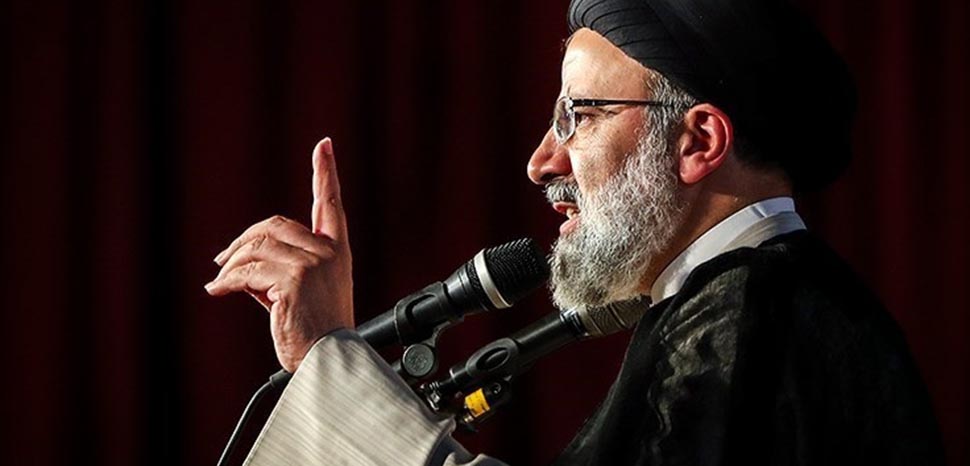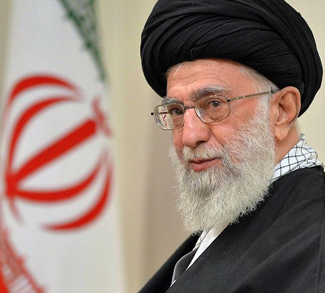Ever since the China-brokered peace agreement in March 2023 between the Kingdom of Saudi Arabia (KSA) and Iran, the international community has been closely observing the implications for regional stability and the political landscape of the Middle East. Since then, the Kingdom of Saudi Arabia (KSA) and Iran have been diligently engaged in the process of normalizing their bilateral relationship and fostering enhanced diplomatic connections. The decision was subsequently accompanied by Syria’s reinstatement into the Arab League following a suspension that lasted over a decade. Moreover, the diplomatic endeavors aimed at fostering closer ties between Iran and Egypt were successfully facilitated through the mediation of Iraq and Oman. Despite the gradual and, presumably, systematic integration of Iran into the Arab world, the main question remains whether Iran is a reliable state that Arab nations can rely on for building peace. Unfortunately, the short answer is “no.”
The ongoing geopolitical tensions among member nations of the Gulf Cooperation Council (GCC) and Iran have been a persistent issue, and the durability of the recently reached peace accord between the Kingdom of Saudi Arabia (KSA) and Iran is a matter of significant concern. An exhaustive examination of Iran’s historical performance spanning the last four decades and its disconcerting conduct in recent times casts uncertainty on Iran’s dependability in a peace accord. The presence of Iran’s destabilizing regional interventions, along with key ideological differences and a long-standing lack of trust, contribute to the prevailing skepticism surrounding the potential for peace between Iran and Arab nations.
Iran’s destabilizing interventionist foreign policy in the Middle East, including its support for proxy militias, has significantly contributed to regional instability. Iran’s arming and financing of groups such as the Houthis in Yemen, Hezbollah in Lebanon, and Shiite factions in Iraq have had a direct impact on escalating conflicts and exacerbating tensions in the region. Moreover, Iran’s backing of these groups is often based on reinforcing religious and sectarian divisions, making it difficult to establish a sustainable peace agreement that addresses long-standing grievances with Iran. That said, one cannot deny that major ideological differences exist between Iran and most of the Arab Sunni nations. For example, Iran and most of the Arab states represent opposing branches within the Islamic world. While most of the Arab states adhere to the Sunni branch of Islam, Iran is predominantly Shiite. These ideological differences, coupled with the quest for regional dominance, have been fueling a competitive dynamic for decades between Iran and the GCC as a whole. Iran’s revolutionary ideology and its ambition to export its revolutionary ideals pose a significant obstacle to any meaningful normalization and peace negotiations. Iran’s revolutionary rhetoric, which includes statements calling for the overthrow of other regional monarchies, has been considered a major threat and viewed with great skepticism by the GCC, thus generating historical mistrust between most of the Arab states and Iran.
Decades of historical tensions between Iran and the GCC have eroded trust on both sides. These bitter relations date back to disputes over territory, control over holy sites in KSA, and the rivalry for regional dominance. Recent events, such as Iran’s alleged involvement in the 2019 attacks on Saudi oil facilities, have only served to deepen this mistrust. Moreover, Iran has openly supported the Houthis in Yemen in the war against KSA over the past years. Building trust is a crucial element for any successful peace agreement but given the historical animosity between Iran and the KSA; achieving this seems like an uphill battle, especially as Iran is exhibiting aggressive behavior towards neighboring GCC member states such as the United Arab Emirates (UAE) and Kuwait. It has been only almost four months since the conclusion of the peace agreement between KSA and Iran, yet KSA is now being tested by Iran over its reaction toward the latter’s stances on disputes with the UAE over three islands, the continuous seizure of oil tankers in the strait of Hormuz, and the developing dispute between Iran and Kuwait over the Durrah gas field. All these incidents in such a short amount of time suggest that Iran is committed to its same ideology of regional dominance and that the peace agreement with KSA might only be a temporary vehicle for Iran to continue pursuing its regional ambitions and grand strategy. The turbulent history characterized by years of ideological, geopolitical, and sectarian rivalries, along with the current behavior of Iran with different GCC states, raises questions about whether Iran will be committed to upholding the terms of the peace agreement or if it will revert to its previous antagonistic behavior. It is essential to remain cautious and ensure that Iran’s actions align with its diplomatic pledges. Otherwise, Iran’s behavior not only undermines the spirit of diplomacy but also raises suspicions about Iran’s possible ultimate objectives in any peace agreement, including the possibility of seeking to marginalize its regional Arab rivals.
Iran’s nuclear program has also long been a contentious issue on the international stage and a critical threat to the GCC. Despite the peace agreement with KSA, Iran’s nuclear program has already reached a stage where the country is very close to developing a nuclear weapon in a short amount of time, should it decide to do so. Thus, regardless of any current “friendly” dialogue between Iran and the GCC, the threat of a nuclear-armed Iran still exists. Furthermore, Iran’s strained relations with the international community also contribute to its unreliability in peace agreements with any country in the GCC. The country’s failure to fully comply with its international obligations under the Joint Comprehensive Plan of Action, which was aimed at limiting Iran’s nuclear program development, has already raised concerns about its commitment to respecting international agreements. In addition, Iran’s conflicting positions with the Western community makes it inclined to operate in the Strait of Hormuz in a destabilizing way, applying pressure on the international community by disrupting the free flow of oil tankers. Such is evident in Iran’s recent attempts to seize oil tankers, including one that was traveling from Dubai to Fujairah in May 2023. This may further explain why the United States (US) decided to send marines, fighter jets, and more warships to the Middle East amid rising tensions with Iran over its aggressive behavior towards merchant vessels. In a likely reaction to these US moves, Iran launched air force drills last week. If anything can be deduced from Iranian behavior, it is the fact that Iran has not learned the lesson of the US operation “Praying Mantis” in 1988, which literally obliterated the Iranian navy in less than 24 hours.
It is worth noting that one significant reason for questioning Iran’s reliability in adhering to any peace agreement is its long-standing use of and support for various proxy groups across the Middle East. As mentioned earlier, Iran has been known to back organizations such as Hezbollah in Lebanon, the Houthis in Yemen, and militant factions in Iraq and Syria, which have contributed to instability in the region. Despite the peace agreement with KSA and Iran’s intention to integrate with the broader Arab states, there is no indication that Iran has taken any substantial steps to discontinue its support for these proxy groups. Thus, further confirming that such groups will remain as instruments of power projection and aggression should Iran disagree with its regional Arab neighbors. Especially since Iran’s relationship with proxy groups allows plausible deniability, it is difficult to hold the country fully accountable for its actions and engagements in disruptive activities in the Middle East, even if Iran publicly acknowledges its commitment to peace.
Although the peace agreement between KSA and Iran has been brokered by China, which has also been showing a growing interest in playing a greater influential role in the Middle East, China’s actual influence over Iran’s behavior toward the GCC is now being tested. The key question is: How relevant is China for the GCC’s strategic security interests? In this regard, China often adheres to the principle of non-interference in the domestic affairs of other nations, including Iran. This approach suggests that China is unlikely to take a strong stance against Iranian activities that might be considered threatening to the GCC. Furthermore, China’s track record of delicate balancing acts for economic gains and ambivalence in international crises raises doubts about its commitment to champion the GCC’s security concerns or become an effective security partner to GCC nations despite being one of the main energy buyers of GCC states. Additionally, despite the fact that China is increasingly developing its military capabilities, it currently lacks the presence and reach required to ensure the security of the GCC nations effectively. While China maintains a naval base in Djibouti and has been expanding its naval presence in the Indian Ocean, it still lacks the necessary military infrastructure and a comprehensive regional defense strategy to adequately protect the GCC from Iranian threats. This lack of military capacity further generates doubt about China’s position as a security partner in the Middle East.
Similarly, given the strategic relations between Russia and Iran as well as the close ties between Russia and the GCC, it can be fair to assume that a lack of Russian alignment with GCC security concerns exists. Historically, the GCC has viewed Iran as a primary threat due to its support for proxy groups, expansive influence, and its nuclear program. Russia, on the other hand, has focused its attention on its own security concerns and other regional dynamics, such as the conflict in Ukraine and its relations with NATO. This divergence in priorities reduces Russia’s reliability when it comes to effectively partnering with the GCC to counter Iranian threats. Furthermore, Russia has been the main armaments supplier to Iran for the past decades, and this defense cooperation has been further strengthened since the start of the Russian-Ukrainian war. All that said, it is clear that the US will remain the GCC’s most strategic security partner in countering Iranian threats. With a powerful military presence in the Middle East, an increasing alignment of strategic interests, and a strong track record of countering regional threats, the US is unquestionably capable of countering the Iranian threat in the region as it evolves.
While the prospect of peace between Iran and the broader GCC is an appealing notion, it is essential to consider the reliability of Iran as a negotiating partner objectively. The ongoing harassment of vessels in the Hormuz Strait, destabilizing regional interventions perpetuated by Iran, ideological differences, nuclear ambitions, and a long history of mistrust all point to Iran as an unreliable candidate for a peace agreement. Any meaningful negotiations would require a fundamental shift in Iran’s behavior and a commitment to respecting national sovereignty. Until these factors change, skepticism remains justified, and a functional peace between Iran and the GCC appears elusive. Furthermore, fully relying on China to influence Iran’s behavior can be of little benefit. While China’s rising influence and economic ties in the Middle East are undeniable, its economic interdependence, non-interference policy, inconsistent stance on regional conflicts, security dilemma in the South China Sea, and limited regional military capabilities contribute to the fact that China has limited ability to safeguard the GCC’s strategic security interests. To ensure the stability and security of the GCC in the face of Iranian threats, the GCC countries should work on further enhancing their defense cooperation and security partnerships with the US, which already demonstrate a deep understanding of the region’s complexities and possess the necessary commitment and military capabilities to act in the defense of regional mutual interests.
Dr. Mohamed ELDoh is a business development and consulting professional in the defense and security sector. Mohamed holds a Doctorate degree from Grenoble École de Management – France, an MBA from the EU Business School- Spain, and an Advanced Certificate in Counterterrorism Studies from the University of St Andrews, UK.
The views expressed in this article belong to the authors alone and do not necessarily reflect those of Geopoliticalmonitor.com.




